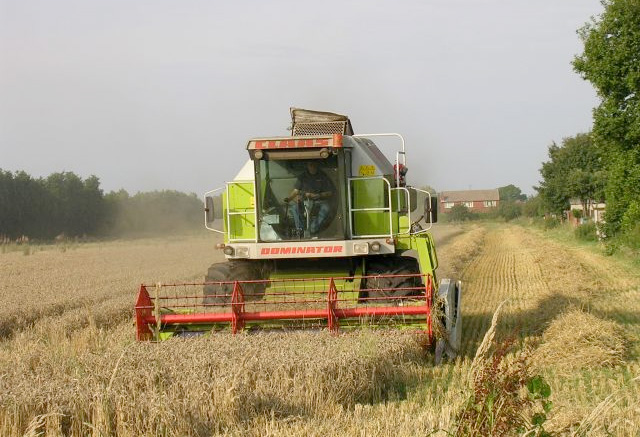
Farmers are being urged to be alert to a banking scam after the National Farmers' Union said a small number of farmers have been defrauded of money.
According to the banking sector, reports of fraudsters contacting farmers are increasing and, now that businesses have been affected, vigilance must be increased.
Fraudsters contact farmers claiming that they represent their bank and that suspicious payments have been set up against their farm accounts. They then ask farmers to provide account details to make the account secure, with the intent of illegally securing and using the funds in that account.
NFU Scotland’s Finance Director Colin Gordon said:
“This is such a busy time of year for farming with lambing, calving and sowing that farmers could be easily caught out by alarming calls from people claiming to represent their bank’s fraud department. Do not fall for this.
“Representatives of the banking sector have informed us that the number of farmers receiving fake calls are increasing, and now some Scottish farmers have been tricked. The warning is that if you unwittingly provide your account information to the fraudsters, they will use it to strip your account.
“The banks have asked us to remind farmers that there are a number of simple things to remember to reduce the chances of becoming a victim of deception.
“Firstly, your bank will never phone or email you and ask for your online password information or any password using your online banking token or card & reader. They will never ask you to make a payment over the phone by using your online account.
“Secondly, if you receive a call claiming to be from your bank and they suggest that you call them back, ensure that you can hear a dial tone first or, where possible, call the bank using a separate phone line from the one on which you received the inbound call. That will prevent a fraudster holding the line open to intercept your return call. Farmers need to be aware – but not alarmed – by this scam but any farmer who is concerned should contact their bank.”
On behalf of the banking sector, Craig Dickson, Director for Agriculture at RBS, said:
“We’ve been alerted to a scam that is directly targeting farmers via telephone. This is not unique to RBS customers but all banks and we would like everyone to be alert to this serious risk.
“The caller pretends to be from their bank or the police, advising of suspicious activity on their account. You will be encouraged to call the bank back 'so you know the call is genuine' - but the fraudsters don't disconnect their call, so they remain on the line. They will then ask you to transfer money to a 'safe account'.
“Please keep in mind that we will never ask customers for their password, pin, card details or security information either over the phone or when they log-in to the banking system online."
Ian Burrow, Head of Agriculture and Renewable Energy at NatWest, said: “We’ve been alerted to a scam that is directly targeting farmers via telephone. This is not unique to our customers but all banks and we would like everyone to be alert to this serious risk.
“The caller pretends to be from their bank or the police, advising of suspicious activity on their account. You will be encouraged to call the bank back 'so you know the call is genuine' - but the fraudsters don't disconnect their call, so they remain on the line. They will then ask you to transfer money to a 'safe account'.
"We know how distressing fraud can be for all involved and provide ongoing support to our customers to deal with the effects.
“We work closely with the police and crime agencies to try and prevent this crime, and communicate frequently with our customers about our security measures and specific threats.
“We will never ask customers for their password, pin, card details or security information either over the phone or when they log-in to the banking system online. We recommend that our customers download the Trusteer Rapport security software. Customers should remember that these rules can protect them even if a Trojan or other virus has infected a computer.”
